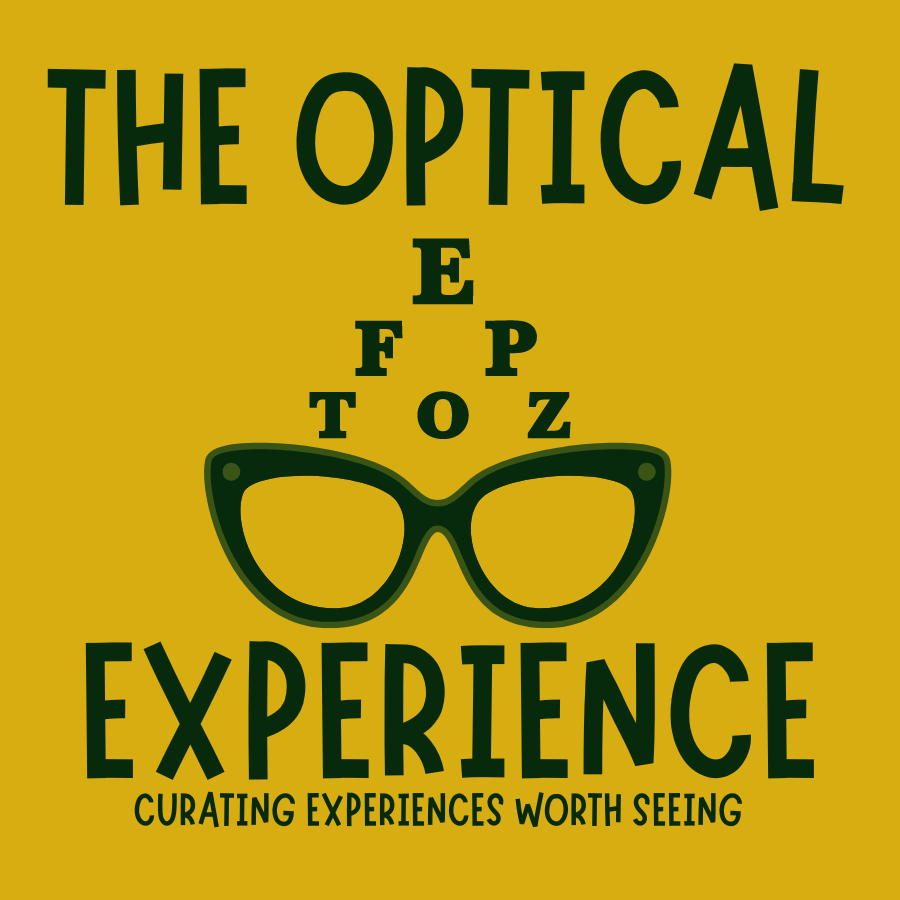Tips for Healthy Vision: Advice from Leading Eye Specialists
Introduction to Eye Health: Why It Matters
Eye health is crucial, but often we take it for granted. Leading eye specialists stress that taking care of your eyes is as important as taking care of the rest of your body. Healthy eyes allow you to see the beauty of the world, perform well at work, and enjoy life to its fullest. However, neglecting eye care can lead to various problems, ranging from blurry vision to more serious conditions like glaucoma or macular degeneration, which can ultimately result in vision loss. Starting with the basics, such as regular check-ups, wearing sunglasses to protect against UV rays, and maintaining a diet rich in vitamins beneficial for eye health, can significantly impact your vision health. Remember, your eyes work hard for you every day, so it's important to take steps to keep them healthy. This section is all about understanding why keeping an eye on your eye health matters more than you might think.
Early Signs of Vision Problems: What to Look Out For
Spotting the early signs of vision problems can save your eyesight. Many of us ignore the subtle shifts in our vision, but being alert to changes can make a big difference. Here's what to watch for: if you start squinting to see distant objects clearly, it's a sign. Blurry vision, seeing halos around lights, and difficulty seeing at night also raise red flags. Don't overlook frequent headaches and eye strain, especially if you spend a lot of time in front of screens. These symptoms might not seem serious but visiting an eye specialist can catch issues early. In the end, knowing these signs can help you take action before it's too late.
Advice from Eye Specialists on Protecting Your Vision
Eye specialists agree: protecting your vision is simpler than you might think. First off, they stress the importance of regular check-ups. Catching eye problems early can save your sight. They also highlight the critical role of nutrition. Foods rich in vitamins C and E, zinc, and Omega-3 fatty acids support eye health. Think green leafy vegetables, oily fish, and nuts. Don't underestimate the power of sunglasses; they shield your eyes from harmful UV rays. Another key piece of advice? Limit screen time and take regular breaks during long periods of staring at your computer or phone. This helps prevent digital eye strain, a growing issue. Lastly, never smoke. It's as bad for your eyes as it is for the rest of your body, increasing the risk of cataracts and age-related macular degeneration. All in all, maintaining healthy vision is about smart, everyday choices. Stick to them, and your eyes will thank you.
The Role of Nutrition in Eye Health
Eating right isn't just good for your waistline; it's crucial for your eyes too. Leading eye specialists agree that what you eat can significantly affect your vision. Foods rich in vitamins A, C, and E, plus minerals like zinc and omega-3 fatty acids, play a huge role in keeping your eyes in top shape. For instance, leafy greens, eggs, and fish such as salmon and tuna are your eye health's best friends. Vitamin A helps protect the cornea, the surface of your eye. Antioxidants in vitamins C and E can ward off age-related eye conditions, and omega-3 fatty acids help improve the function of the retina. Remember, good nutrition today keeps those glasses at bay tomorrow.
Common Eye Diseases and How to Prevent Them
Most common eye diseases sneak up with little warning. Your best defense is knowing what you're up against and how to cut your risks. Let’s snap to it. Cataracts, clouding of the eye's lens, can lead to blindness if untreated. Wear sunglasses and a hat with a brim to protect your eyes from the sun. Next up, glaucoma, sneaky because it shows no early symptoms yet leads to major vision loss. Prevent it by getting your eyes checked regularly, especially if your family has a history of the condition. Another troublemaker is age-related macular degeneration (AMD), which can blur your central vision. You can hold it off by choosing a diet rich in leafy greens and fish high in omega-3 fatty acids. Then there's diabetic retinopathy, a serious sight stealer for people with diabetes. Manage your sugar levels, and don’t skip your yearly eye exams. Remember, most eye diseases can be managed or prevented with early detection and some savvy preventative measures. Protect those peepers!
The Importance of Regular Eye Exams
Skipping regular eye exams is like driving at night without headlights. You might think your vision is fine, but eye exams are about more than just checking if you need glasses. Eye doctors can spot early signs of serious issues like glaucoma, macular degeneration, and even diabetes before you notice anything's wrong. Think of it as a health check-up for your eyes. Adults should get their vision checked every two years, while kids should go yearly. Don't wait until you notice a problem. By then, it might be tougher to fix. Regular check-ups keep your sight sharp and your eyes healthy.
Tips for Reducing Eye Strain in the Digital Age
In today's screen-centric world, eye strain has become a common issue. Leading eye specialists recommend simple yet effective ways to reduce this problem. First, follow the 20-20-20 rule; every 20 minutes, look at something 20 feet away for 20 seconds. It gives your eyes a break and helps reduce the strain. Also, ensure your computer screen is at eye level and about an arm's length away. This position prevents you from having to strain your neck or eyes to see clearly. Adjust the brightness and contrast of your screen so it's comfortable to look at — too bright or too dim can cause extra strain. Don't forget to blink! When we focus on screens, we tend to blink less, which can lead to dryness and irritation. Make a conscious effort to blink more often. Lastly, regular eye check-ups are crucial. Even if you think you don't have vision problems, an eye specialist can spot early signs of strain or stress on your eyes. Taking these steps can help keep your vision healthy and reduce the strain your digital life may cause.
Protective Eyewear: When and Why It's Necessary
Wearing protective eyewear isn't just for those working in labs or heavy industries. Eye specialists stress its importance for a wide range of activities. Think sports, home repairs, or even gardening. Why? Because your eyes are incredibly vulnerable. A tiny splinter, a speck of dust, or a stray elbow during a basketball game can lead to serious injuries. Sunglasses protect your eyes from harmful UV rays, reducing the risk of cataracts. When choosing protective eyewear, go for ones that block 99% to 100% of both UVA and UVB rays. For sports and other high-impact activities, look for eyewear labeled as 'ASTM F803 approved'—indicating they meet the strict safety standards. Simply put, whether you're mowing the lawn, playing beach volleyball, or welding in your garage, putting on protective eyewear is a small step that can prevent big problems. Protecting your vision should be a no-brainer, so grab those goggles or glasses and keep your eyes safe.
Natural Remedies and Exercises for Strengthening Vision
To keep your eyes in top shape, you don't always need high-tech solutions. Sometimes, the best treatments are what nature and a bit of discipline offer. For starters, eating right plays a huge role. Foods rich in vitamins A, C, and E and minerals like copper and zinc are great for eyesight. Think carrots, leafy greens, seafood, and berries. Next, exercising your eyes might sound odd, but it works. Simple practices, like focusing on a distant object for a few seconds before refocusing on something close, can significantly help. This exercise reduces eye strain, especially important in today's screen-dominated world. Also, regular breaks from screens using the 20-20-20 rule – every 20 minutes, look at something 20 feet away for at least 20 seconds – can prevent eye fatigue. And don't forget about sunglasses when you're out. UV rays aren't just bad for your skin; they can harm your eyes too. Lastly, staying hydrated is key. Drinking plenty of water helps maintain moisture levels in your eyes, avoiding dryness. These simple steps, backed by time and nature, can keep your vision sharp. No complicated jargon, no immense costs – just straightforward, effective care for your eyes.
Conclusion: Integrating Eye Health into Daily Life
Keeping your eyes healthy doesn't have to be complicated. Start simple. Blink often when you're staring at screens to reduce eye strain. Eat foods rich in omega-3 fatty acids and antioxidants to support good vision. Don't forget to wear sunglasses on sunny days to protect against UV rays. Make sure you're seeing an eye specialist regularly to catch any issues early. And if you're already wearing glasses or contacts, keep your prescriptions up to date. It takes effort, but integrating these habits into your daily routine can lead to lasting eye health. Remember, your eyes are precious – take good care of them.


